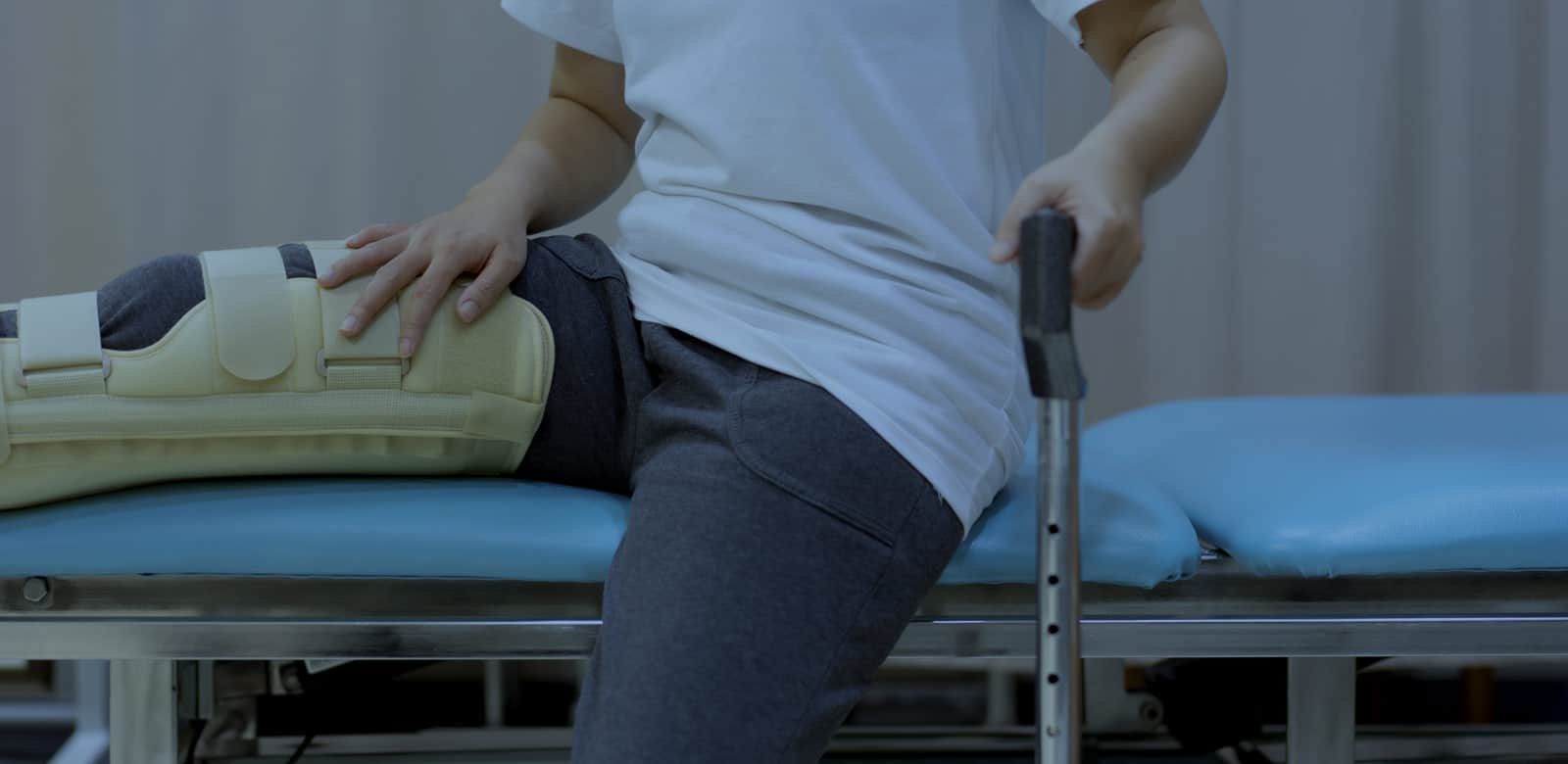
Post Surgical physiotherapy
The success of your surgery doesn’t finish the moment you leave the operating theatre and in fact, a successful pre and post-surgical physiotherapy are very crucial. Post-orthopedic and neurological surgery, you’ll almost certainly require exercise progression to fully regain your strength, flexibility, and function. The quickest, safest and easiest way to return to your day to day activities is by consulting a physiotherapist experienced in post-operative rehabilitation.
Even if you or your near ones, unfortunately, sustain a fracture and your doctor decides it be managed conservatively (non-surgical), still you need extensive and specialized physiotherapy after the cast is removed to restore the functions of the limb and regain strength. Read more about our orthopedic rehabilitation.
At OPTRA Care, we’ll happily assist you in your post-operative care. Our expert physiotherapists are well acquainted with the modern, evidence-based accelerated protocols for different post-surgical rehabilitation. We’ll happily liaise with your surgeon to determine any specific requirements based on your individual surgery.
After the surgery, initially, you may face difficulty to travel to a physiotherapy clinic. But this should not become a hindrance in your way of recovery. We have excellent home physiotherapy team who can come to your house and do the necessary rehabilitation. Read our Home physiotherapy program.
Common Surgeries Requiring Post-Operative Care

Shoulder
- Physiotherapy after Shoulder Reconstruction Surgery.
- Physiotherapy after Shoulder muscle Stabilisation Surgery
- Physiotherapy after Rotator Cuff Repair Surgery
- Physiotherapy after Acromioplasty
- Physiotherapy after shoulder Manipulation
- Physiotherapy after Capsulotomy
- Physiotherapy after Shoulder Fracture
Elbow
- Physiotherapy after Tennis Elbow Surgery
- Physiotherapy after Golfers Elbow Surgery
- Physiotherapy after Elbow Fracture


Hip
- Physiotherapy after Hip Replacements
- Physiotherapy after Hip Resurfacing
- Physiotherapy after Hip labral repairs
- Physiotherapy after Hip Arthroscopic surgery
- Physiotherapy after Hip Fracture
Wrist & Hand
- Physiotherapy after Carpal Tunnel Surgery
- Physiotherapy after Wrist Fracture
- Physiotherapy after finger fracture
- Physiotherapy after Tendon Repairs


Knee
- Physiotherapy after ACL surgery
- Physiotherapy after PCL surgery
- Physiotherapy after knee Ligament Surgery
- Physiotherapy after Knee Replacements
- Physiotherapy after knee Arthroscopy
- Physiotherapy after Knee Meniscus Repair
- Physiotherapy after Lateral Release
- Physiotherapy after Patella Tendon Transfer
- Physiotherapy after knee Fracture
Ankle & Foot
- Physiotherapy after Ankle Reconstruction
- Physiotherapy after Ligament Repairs
- Physiotherapy after Arthroscope
- Physiotherapy after ankle Fracture
- Physiotherapy after Spur Removal
- Physiotherapy after Bunionectomy


Spine (Neck & Back)
- Physiotherapy after Discectomy
- Physiotherapy after Micro-discectomy
- Physiotherapy after Laminectomy
- Physiotherapy after Spinal Fusion/Stabilisation
FAQs
Q. How soon can I start physiotherapy after surgery?
Answer: Commencement of physiotherapy varies, with guidelines from your surgeon. Early initiation supports healing and minimizes complications.
Q. What exercises can I do at home to aid my recovery after surgery?
Answer: Your physiotherapist will design a personalized home exercise plan, emphasizing gradual movements for strength and flexibility. Consistent adherence is crucial.
Q. Is there a risk of pain during physiotherapy sessions?
Answer: Some discomfort is expected, but your physiotherapist tailors exercises to your comfort level. Effective communication ensures a balance between challenge and comfort.
Q. How long will the rehabilitation process take?
Answer: Recovery times vary, with your physiotherapist setting realistic goals and milestones. Regular progress assessments guide the duration of your rehabilitation.
Q. What can I do to minimize swelling and inflammation?
Answer: Follow your physiotherapist’s recommendations, incorporating ice therapy and elevation. Consistent communication with your healthcare team is vital.
Q. Are there signs of complications I should watch for during rehabilitation?
Answer: Look out for increased pain, swelling, or unusual symptoms. Prompt communication with your healthcare provider addresses potential complications effectively.
Q. How can I manage post-surgical fatigue?
Answer: Balance activity with rest. Your physiotherapist guides pacing, progressively increasing activity levels as your body allows.
Q. Will I be able to resume normal activities after rehabilitation?
Answer: The goal is to restore function. Collaborate with your physiotherapist to craft a plan for a gradual return to normal activities, considering your specific surgery.
